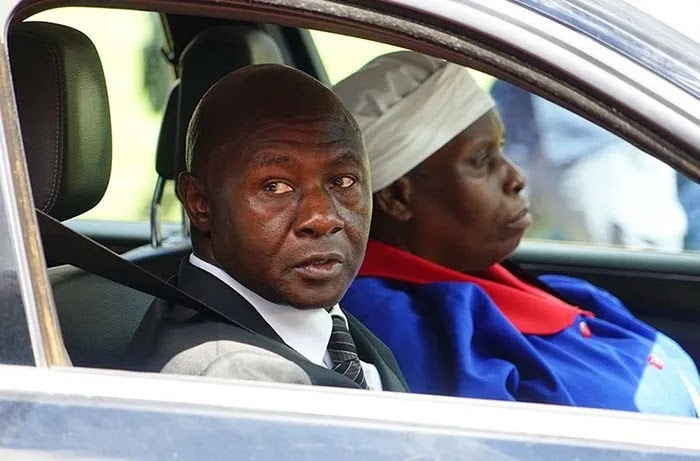Starting Our Life Together: The Journey to Our First Home
As our wedding day approached, Mavis and I began scouting for an affordable place to live. We relied on word of mouth, lacking the funds for classified ads. I shared our plans with my late cousin, Media Chaitezvi, who worked at the famed HM Barbours department store. She took it as her personal mission to help.
A few weeks later, she called with good news: her workmate, Mr. Sande, was happy to rent us two rooms at his home in New Canaan, Highfield. I was elated. We would finally live under one roof, and I would be returning to my roots in the ghetto, a place where I felt comfortable and at home.

A Test of Love and Humility
For my wife Mavis, who grew up in the leafy suburb of Waterfalls, moving to Highfield was a new experience. She left a life of privilege—her own bedroom and modern amenities—for two rooms where we shared an outdoor toilet with our landlord and other tenants. One room was our bedroom; the other served as our kitchen and sitting room.
On the days it was her turn, Mavis would wake up early to clean the communal yard and toilets without a single complaint. Her grace and strength in adapting to this new life earned her the admiration of everyone, especially Mrs. Sande. Any doubt I might have had about my choice of partner vanished. I knew I had married a well-rounded character who deserved nothing but my deepest love and respect.
A Honeymoon Steeped in History
We spent our honeymoon at Rhodes Camp in Nyanga, a destination chosen for its affordability and rich history. I had always been intrigued by the story of Cecil John Rhodes and his conflict with my great-grand-ancestor, Chief Chingaira Makoni. Visiting the Eastern Highlands, a place Rhodes cherished, felt like a throwback into history, allowing us to connect with our past while enjoying the serene beauty of the landscape.
After a week, we returned to our two rooms in Highfield, back to the hustle of pushing and shoving to get onto crowded buses—a stark contrast to the orderly transport Mavis was used to in Waterfalls. Yet, she was not moved by the challenges, growing more confident and finding joy in our new life together.
My Highfield Roots
Highfield holds a special place in my heart. It's my birthplace and was home to influential nationalists like Joshua Nkomo and Robert Mugabe. My father’s nomadic career as a bus driver meant I lived there intermittently, staying at my uncle Tongai Mataranyika's house in Egypt, Highfield.
A Life of Constant Motion
Our family life was one of constant movement. We relocated from Harare to our rural home in Rukweza, then to Sakubva, Mutare, and back to Highfield. These years were marked by my father changing jobs, the birth of my younger brothers, and eventually, the painful separation of my parents.
My Mother's Unwavering Enterprise
When our stepmother left and my father lost his job, we were in a quandary. But my mother, always enterprising and hardworking, stepped in. She had started an outside catering business, supplying food to construction workers in Chitungwiza. She negotiated for our custody and moved us into her new home in Seke. It was from her that I inherited the entrepreneurial flair and persistence that would later drive my success. She ensured we continued our education, finding us places in new schools and providing a stable home against all odds.
The Gamble That Paid Off
With Mavis by my side, I felt emboldened to take more risks. On March 1, 1992, exactly a year after we married, I switched from being an admin clerk at Old Mutual to a commission-based sales representative. It was a gamble, but it paid off. Our income grew, and we began to dream of owning our own house.
After about a year and a half of renting in Highfield, we had saved enough to buy our own home in Kambuzuma Section 2. House Number 108 became our first titled property, heralding new beginnings, new goals, and ultimately, new horizons.
Polaris Systems: Our approach works so well because we provide a single point of contact for every customer, creating multiple efficiencies. We aim to ensure a seamless experience, resulting in partnerships that deliver improved value and minimal downtime. This is how we achieve true customer satisfaction.
We are available 24/7, 365 days a year. Contact us anytime!


